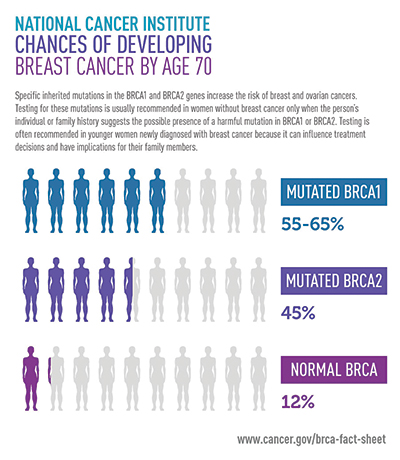Maintaining genomic integrity is fundamental for cells to stave off alterations that may begin the process of carcinogenesis. In this never-ending battle, cells employ an array of molecular mechanisms meant to thwart mutational forces—with the most important being direct DNA repair. The importance of these pathways is underscored by the fact that disabling a single DNA repair pathway (mismatch repair, or MMR) results in a 100-fold increase in the accumulation of DNA mutations, as well as the 2015 Nobel Prize in Chemistry to three DNA repair pioneering researchers.
Over the years, there has been a steady stream of research linking deficiencies in DNA repair pathways with various tumor types. Now, investigators at Cancer Research UK (CRUK) have just released data describing how mutational signature analysis found an array of MMR-deficient breast cancer tumors—many of which could potentially be targeted with programmed cell death protein 1 (PD-1) immune checkpoint inhibitors. Findings from the new study were published today in Cancer Research in an article entitled “Whole-Genome Sequencing Reveals Breast Cancers with Mismatch Repair Deficiency.”
Cancers caused by MMR deficiency involve gene mutations that affect the ability of the cell to repair the mistakes that can happen during the DNA replication process, which the cells must perform each time they divide. MMR-deficient tumors have 10 to 100 times more mutations than tumors with intact MMR pathways. In this current analysis, the researchers used previously published whole genome sequencing (WGS) data of breast cancer tumors from 640 patients and analyzed patterns of mutagenesis called mutational signatures. Additionally, the investigators looked for mutations in multiple genes known to be associated with MMR deficiency—MLH1, MSH2, MSH6, PMS2, PMS1, SETD2, MYH11, EPCAM, TGFBR2, MLH3, and MUTYH—to identify the defects responsible for the MMR deficiency. They discovered 11 of 640 tumors harbored the MMR deficiency in variable amounts.
“We found variations of mutations, including single-base substitutions and small insertions/deletions,” explained senior study investigator Serena Nik-Zainal, M.D., Ph.D., an advanced clinician scientist at CRUK and honorary consultant in clinical genetics at the University of Cambridge and Wellcome Trust Sanger Institute.
In addition to base substitution mutational signatures specific to MMR-deficient tumors, the researchers also found an average of 20,870 small insertions/deletions in the 11 MMR-deficient breast cancer tumors compared to only a fraction, 270 on average, in the non-MMR-deficient tumors. “By looking at multiple signals, we identified a subset of tumors that would not have been detected as MMR-deficient using current clinical criteria for the assessment of breast cancer,” Dr. Nik-Zainal added.
Due to its high degree of sensitivity and specificity to classify tumors, the mutational signature analysis might be a better biomarker for use in future clinical trials.
“MMR-deficient cancers have been discovered to be highly responsive to immune therapies such as PD-1 checkpoint blockade, making their definition in patients, where they may be relatively rare, paramount for treatment decisions,” the authors wrote.
“In some recent pharmaceutical trials, the protocols used single biomarkers and startlingly different cutoff points to measure programmed death ligand 1 (PD-L1) expression for tumor classification, which may explain the different results in progression-free survival outcomes,” Dr. Nik-Zainal noted. “With mutational signature analysis that investigates multiple mutations, we can see a direct readout of the pathway that has gone wrong. Our method might outperform the use of a single biomarker.”
The main limitation of this study is that it is a technical analysis and the findings need to be tested in clinical trials. MMR deficiency is rare in breast cancer, as the investigators found that only 1% to 2% of breast cancer tumors had MMR deficiency. Moreover, the authors noted that although this technology could be used to look for MMR deficiency in other cancers, assessing whether using these mutational signatures to tailor cancer treatment helps improve survival is important.
“Our research demonstrates the value of using mutation patterns to identify MMR deficiency in unselected breast cancer cases,” Dr. Nik-Zainal concluded. “These findings are important because a subset of patients may be responsive to immunotherapies such as PD-1 checkpoint blockade, as has been demonstrated with MMR deficiency in colorectal and other cancers.”


